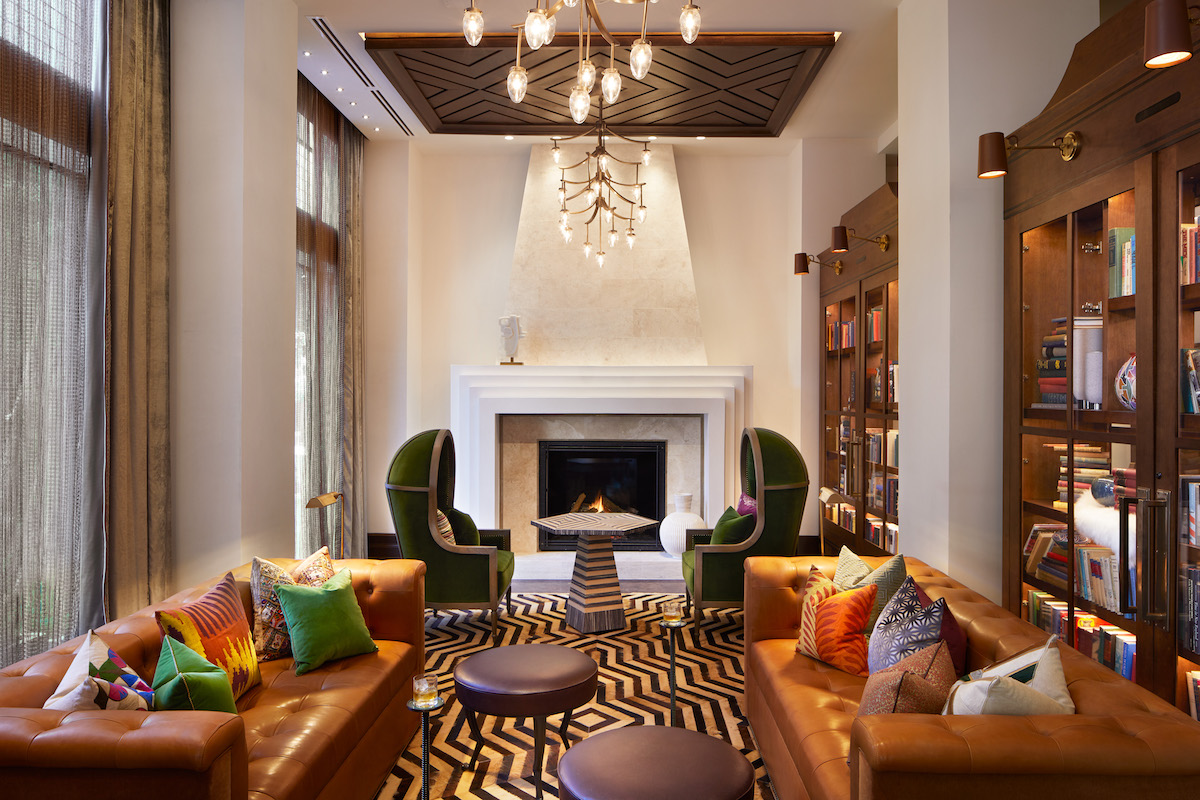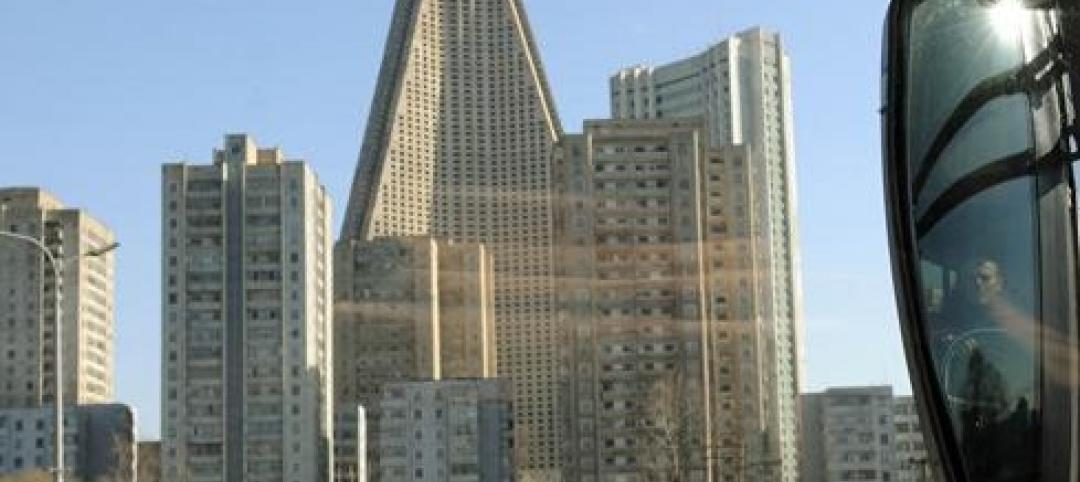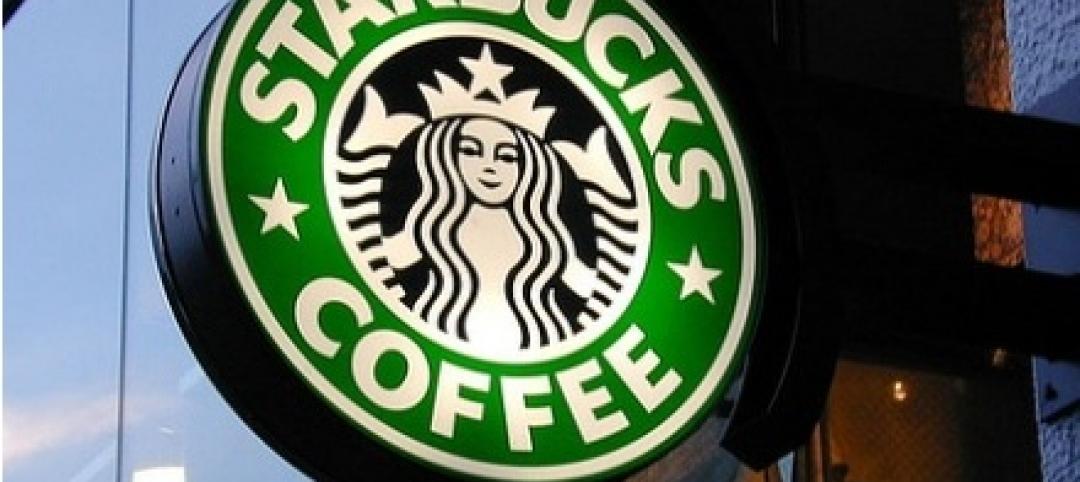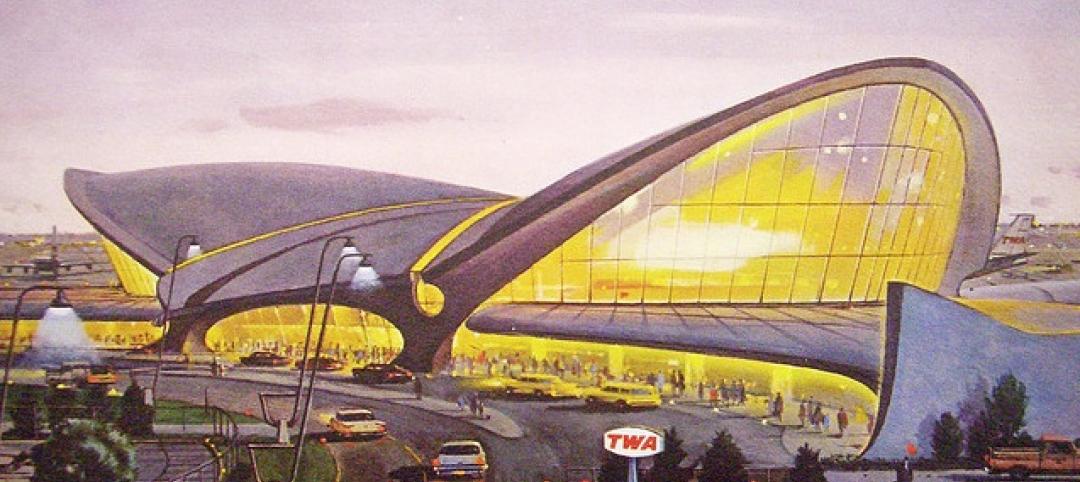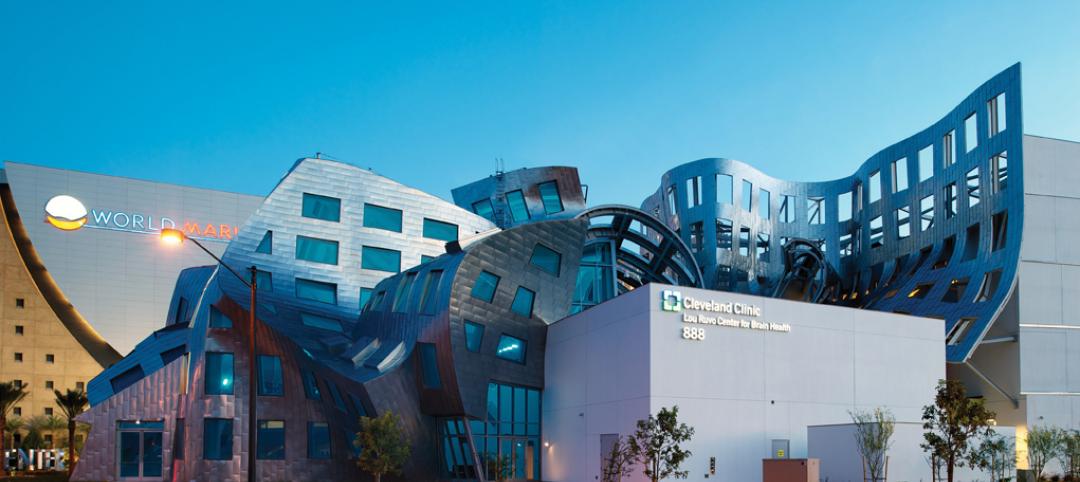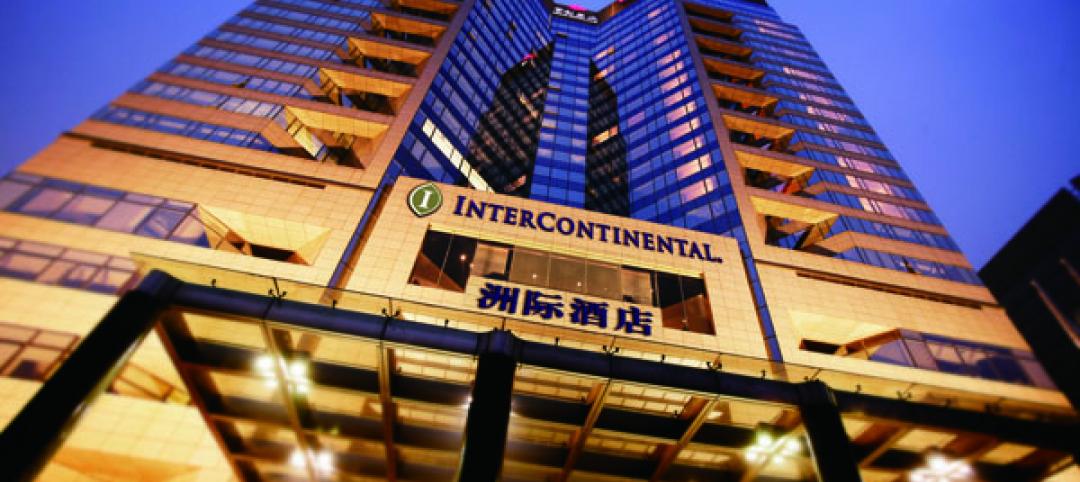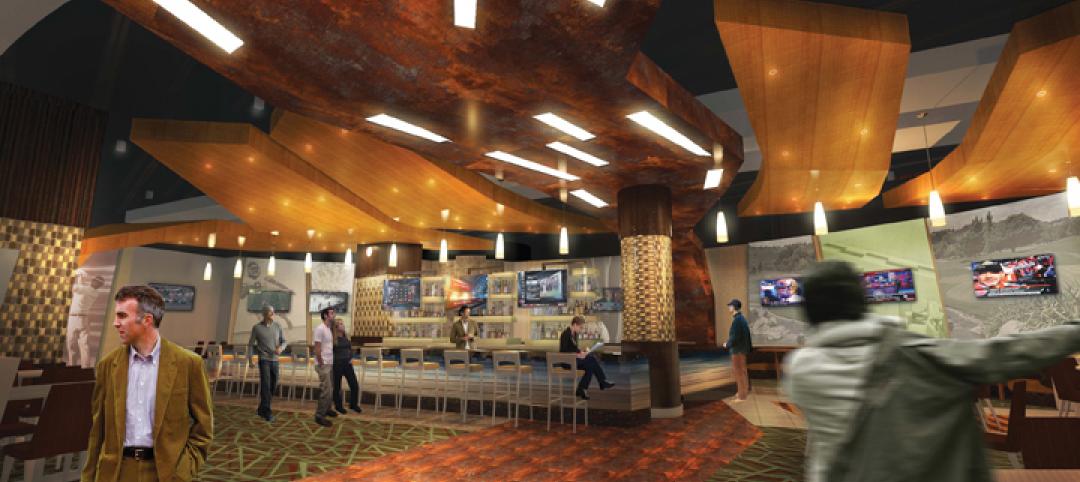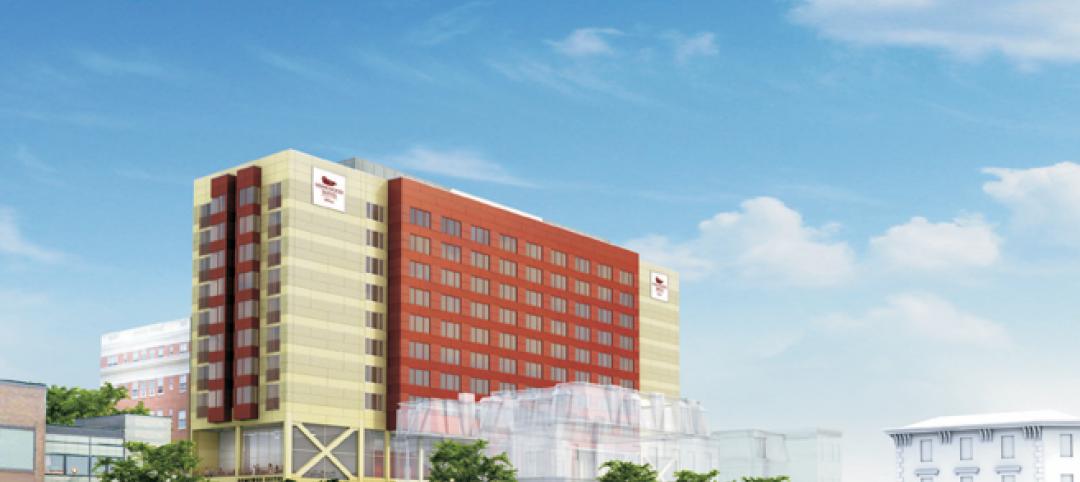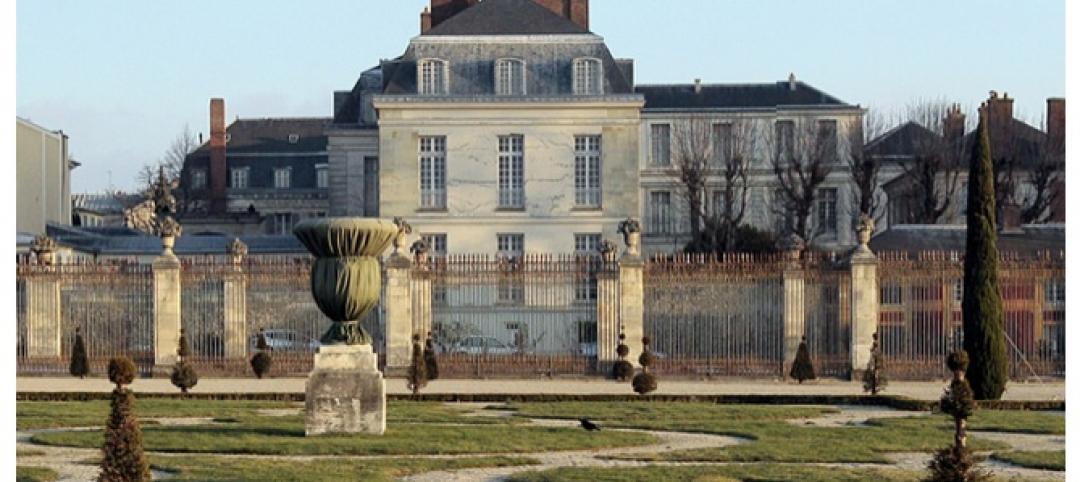Their clients don’t expect the hospitality sector to fully recover from the coronavirus outbreak for at least two years. And while AEC firms serving this sector say they’ve restarted hotel projects that had been put on hold during the pandemic, they also foresee mostly renovation and adaptive reuse, rather than new construction, in their immediate futures.
“Compared to other sectors, hospitality is probably only better than retail at this point,” says Bob Winter, PE, Director of Hospitality for the engineering consultant IMEG.
Even PCL Construction—which as of early June was working on 39 hotel/resort projects, including a first-of-its-kind immersive adventure resort, Star Wars: Galactic Starcruiser at Disney World in Florida—expects the negative impact from COVID-19 to “linger for years,” says Bob Hopferberg PCL’s Vice President of National Business Development.
Some firms say they are girding for a spate of hotel foreclosures over the next 12 to 18 months. Distressed and half-built assets will be in demand among private equity firms, and some of these properties will likely be renovated and converted to multifamily, mixed use, or student housing.
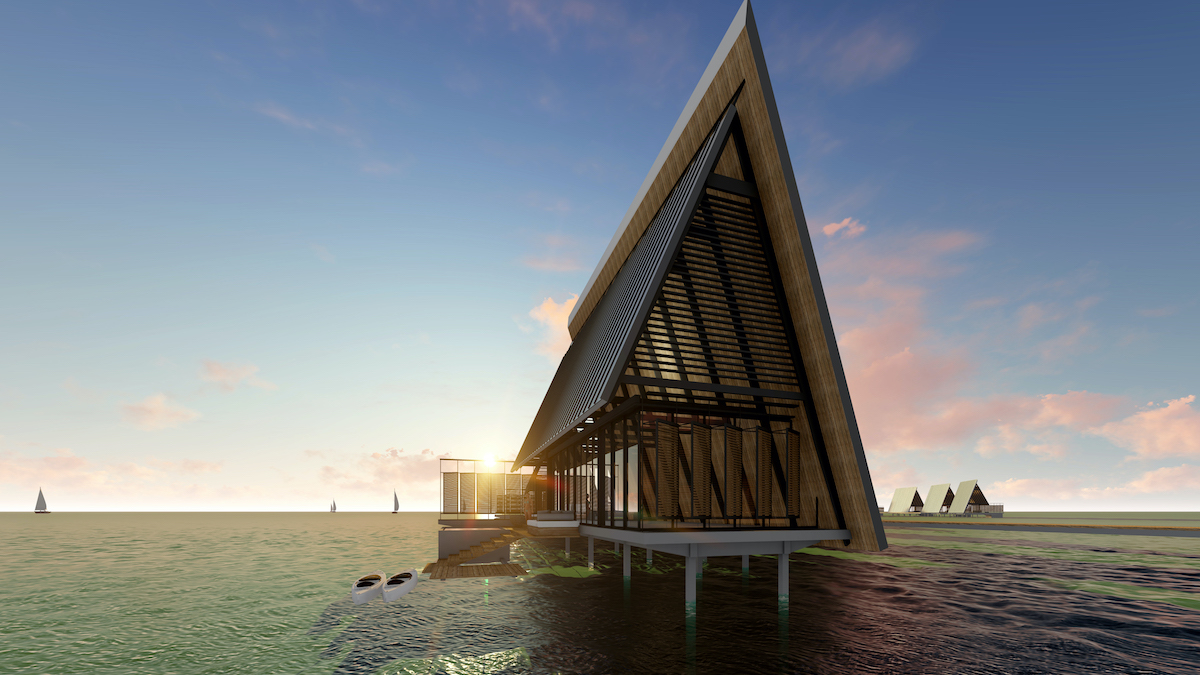
To save time and money, more hotel building teams are turning to prefabrication and modular construction. HKS evaluated more than 15 manufacturers with modular and industrialized construction capabilities to discover the most advantageous solutions for recent design projects such as prefab bungalows for a private island resort. Courtesy HKS
While HKS sees the prospects for new hotel construction in the remainder of 2020 as “bleak,” it is also seeing positive signs for renovations meant to reposition existing buildings. “The mixed-use developments that have a residential component continue to show good health,” say Luis Zapiain, HKS’s Director of Hospitality, and Jennifer Dohrmann-Alpert, its Senior Hospitality Advisor.
“Most hotel owners and operators are looking at strategies that do not require physical architectural changes,” observes Nancy J. Ruddy, Founding Principal and Director of Interior Design with CetraRuddy in New York. She’s seeing hotels planning soft reopenings that span over three months, after which owners will reassess what’s working over six- and 12-month intervals until a vaccine is available.
Renovation projects to make hotel guests feel safe
Hotel survival is all about rebuilding guests’ confidence about their safety, and their comfort about traveling again. HKS created a document that provides guidelines for welcoming guests back, with a priority on safety and wellbeing. “Operational procedures have been changed, likely permanently, affecting everything from check-in/registration, housekeeping, room service, food and beverage, and use of amenities,” adds Tom Philippi, AIA, NCARB, LEED AP, Design Principal at SmithGroup’s Dallas office.
Hotels desperate to win back customers are now engaged in what Randy Shelly, Executive Vice President–Hospitality for Shawmut Design and Construction, calls a “competition for cleanliness.” As a result, Shelly expects the renovation cycle for existing hotels to shorten after the pandemic, which might ultimately help hotels increase their revenue per available room.
The biggest change occurring at hotels is the increasing importance of their food and beverage offering. “When designing hotels, one of the first questions is: How can we bring F+B into this space? We expect to see more areas in the hotel become flexible spaces to dine informally. The entire hotel could become a great F+B experience,” says Bob Neal, a Principal with Cooper Carry’s Hospitality Studio. He, like other AEC sources, is seeing a spurning of buffets (which are highly profitable but can be infection traps) in favor of prepackaged room service and grab-and-go areas in lobbies and corridors.
The other prominent renovation trends for hotels is creating a touchless environment that minimizes the spread of air- and liquid-borne diseases. For that effort, “technology is coming front and center,” says Ruddy. Guest rooms will include enhanced in-room technology to accommodate guests who want to spend more time in their rooms working or relaxing.
In June, the hotelier citizen M introduced safety standards that include a mobile app that allows guests to create a keycard they can use to get into their rooms, order food, and control their in-room environment. The app streamlines contactless check-in/out, payments, and in-room service requests.
“We see hotels and resorts developing more ‘touchless’ interactions at all levels,” says Chad Wisler, PE, LEED AP BD+C, Managing Principal at Vanderweil Engineers’ Boston office. These interactions range from front-of-house entrances to guests’ use of their mobile devices for their virtual room keys, charge accounts, and menu and amenity selections. “COVID-19 has forced this sector (and clients) to adopt this new paradigm,” says Wisler.
Technology will also play a bigger role in hotel sanitization. For example, PCL has developed what it calls a Hygiene Lighthouse, which deploys Far-Ultraviolet bulbs that can kill 99.99% of pathogens quicker and more efficiently than other UV or traditional methods for cleaning rooms, housekeeping carts, and bell carts.
But what hotel owners also need to be cautious about, warns IMEG’s Winter, is not allowing technology and cleanliness to make their properties bland, sterile, and impersonal in ways that dissipate “the social aspects that drive the business.”
Hotel design: A bigger push for prefab and modular options
As the hospitality sector claws its way back to something resembling normal, certain venue types could recover faster. Philippi of SmithGroup cites extended-stay and apartment-style hotels. Wisler of Vanderweil Engineers—which now leans toward design-assist delivery—thinks experience-based resorts and wellness retreats will be in demand. Shelly of Shawmut Design and Construction says hotels in New York are looking at their properties as “mini mixed-used developments” and are focusing on using “engaging public spaces” to connect with their surrounding neighborhoods. Shawmut is also seeing hotels in southern California redesigning spaces to activate revenue; he points specifically to the Four Seasons Westlake Village that turned lobby space into a bar and restaurant area.
CetraRuddy and SmithGroup are among the AEC firms that see connections to the outdoors and nature becoming more common to hotel/resort design and wellness programming.
ALSO SEE: Why clean is the new green in the U.S. hospitality sector
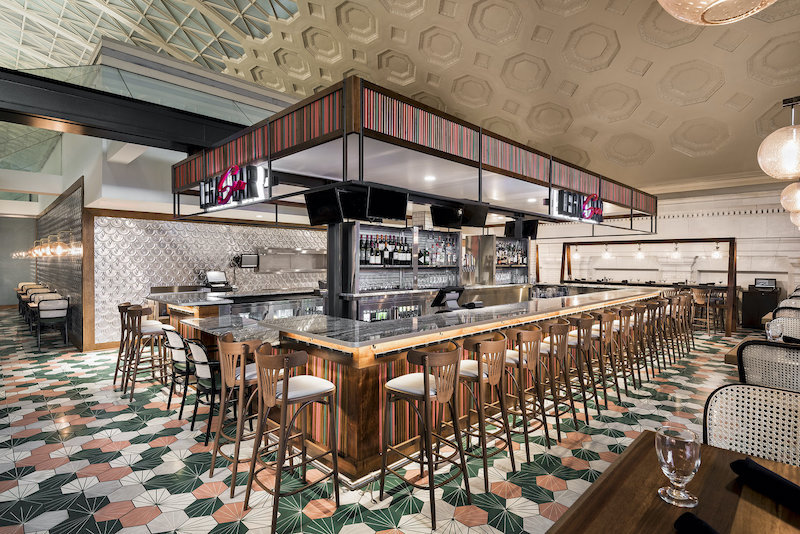
Three design firms share their takes on what will make customers more comfortable about returning. Read the article.
While luxury hotels foundered during the pandemic, firms like Shawmut and HKS believe affluent guests will eventually return to these venues. “On the bright side, investors are still buying hotels, and the focus has shifted to ultra-luxury or to limited service/select service properties,” observe Zapiain and Dohrmann.
They’re also seeing modular design “making waves” in the hospitality sector. HKS has been working with suppliers “to refine and develop their hospitality products” for recent projects that include prefab bungalows for a private island resort and a fully modular urban hotel in Anchorage, Alaska. HKS estimates that prefabricating guest rooms in factories can reduce a project’s schedule time by up to 50% and its construction budget by 20%.
Prefabrication “is a major push” in hospitality, concurs Matt Murphy, Commercial Core Market Leader with DPR Construction. Applications range from full modular units to prefab bathrooms, electrical rooms, and exterior skin systems. For AC Marriott in Phoenix, DPR used a prefab structural system from Digital Building Components; the JW Marriott in Charlotte, N.C., features prefab bathrooms from SurePods. “We anticipate this trend will increase, post-pandemic, as contractors look at ways to limit on-site labor and the challenges of COVID-19 prevention measures such as social distancing,” says Murphy.
Related Stories
| Mar 9, 2011
North Korea resumes construction of 'world's worst' hotel
Is North Korea finally serious about completing construction of Ryu-Gyong Hotel—once called the world’s worst building—after years of neglect and secrecy?
| Mar 9, 2011
Igor Krnajski, SVP with Denihan Hospitality Group, on hotel construction and understanding the industry
Igor Krnajski, SVP for Design and Construction with Denihan Hospitality Group, New York, N.Y., on the state of hotel construction, understanding the hotel operators’ mindset, and where the work is.
| Mar 9, 2011
Fast food franchises are taking the LEED
Starbucks, Arby’s, and McDonald’s are among the top when it comes to fast food franchises implementing sustainability practices. This article takes a look at the green paths these three brands are taking, and how LEED factors into their business and their future.
| Feb 15, 2011
Iconic TWA terminal may reopen as a boutique hotel
The Port Authority of New York and New Jersey hopes to squeeze a hotel with about 150 rooms in the space between the old TWA terminal and the new JetBlue building. The old TWA terminal would serve as an entry to the hotel and hotel lobby, which would also contain restaurants and shops.
| Feb 9, 2011
Hospital Construction in the Age of Obamacare
The recession has hurt even the usually vibrant healthcare segment. Nearly three out of four hospital systems have put the brakes on capital projects. We asked five capital expenditure insiders for their advice on how Building Teams can still succeed in this highly competitive sector.
| Jan 25, 2011
AIA reports: Hotels, retail to lead U.S. construction recovery
U.S. nonresidential construction activity will decline this year but recover in 2012, led by hotel and retail sectors, according to a twice-yearly forecast by the American Institute of Architects. Overall nonresidential construction spending is expected to fall by 2% this year before rising by 5% in 2012, adjusted for inflation. The projected decline marks a deteriorating outlook compared to the prior survey in July 2010, when a 2011 recovery was expected.
| Jan 25, 2011
InterContinental Hotels Group gets LEED pre-certification
InterContinental Hotels Group, the world's largest hotel group by number of rooms, announced that its in-house sustainability system Green Engage has been awarded LEED volume pre-certification established from the USGBC and verified by the Green Building Certification Institute. IHG is the first hotel company to receive this award for an existing hotels program.
| Jan 19, 2011
San Diego casino renovations upgrade gaming and entertainment
The Sycuan Casino in San Diego will get an update with a $27 million, 245,000-sf renovation. Hnedak Bobo Group, Memphis, Tenn., and Cleo Design, Las Vegas, drew design inspiration from the historic culture of the Sycuan tribe and the desert landscape, creating a more open space with better circulation. Renovation highlights include a new “waterless” water entry feature and new sports bar and grill, plus updates to gaming, poker, off-track-betting, retail, and bingo areas. The local office of San Francisco-based Swinerton Builders will provide construction services.
| Jan 19, 2011
Extended stay hotel aims to provide comfort of home
Housing development company Campus Apartments broke ground on a new extended stay hotel that will serve the medical and academic facilities in Philadelphia’s University City, including the University of Pennsylvania and the Children’s Hospital of Philadelphia. The 11,000-sf hotel will operate under Hilton’s Homewood Suites brand, with 136 suites with full kitchens and dining and work areas. A part of the city’s EnergyWorks loan program, the project aims for LEED with a green roof, low-flow fixtures, and onsite stormwater management. Local firms Alesker & Dundon Architects and GC L.F. Driscoll Co. complete the Building Team.
| Jan 4, 2011
Luxury hotel planned for Palace of Versailles
Want to spend the night at the Palace of Versailles? The Hotel du Grand Controle, a 1680s mansion built on palace grounds for the king's treasurer and vacant since the French Revolution, will soon be turned into a luxury hotel. Versailles is partnering with Belgian hotel company Ivy International to restore the dilapidated estate into a 23-room luxury hotel. Guests can live like a king or queen for a while—and keep their heads.


